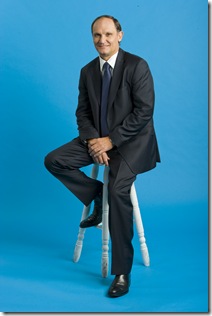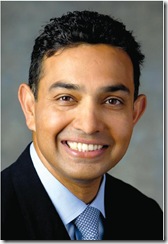
The telecommunications sector is one of the most volatile industries in terms of the tenure of chief executives of companies, who face one of the highest turnover rates, according to consulting firm Booz & Co. With recent high profile changes at the top at telecoms companies such as Alcatel-Lucent, Motorola, Vodafone and Vodacom, Michelle Mills explores the dynamics in managing succession plans in the telecoms arena and the skills set required to survive the corner office
The spate of changes of top management at leading telecoms firms across the globe in the last two years suggests that the industry is unrelenting in its pursuit of the best talent necessary to lead telecoms companies – be they technology providers or service operators – in what has become an especially complex industry.
Research from Booz & Co confirms this inclination, identifying that the telecommunications sector leads all others in terms of the turnover rates of chief executives. In its 2007 annual survey of CEO turnover at the world’s 2,500 largest publicly traded corporations, the telecoms sector ranked first with a 21.7 per cent attrition rate, followed by information technology at 17.4 per cent.
Booz & Co’s ‘CEO Succession 2007: the performing paradox’ highlighted that interestingly, the worst-performing CEOs actually faced a low probability of being forced from office in the short term. Leaders whose companies were in the bottom 10 per cent of performance – defined as those whose two-year total shareholder returns had fallen by 25 per cent in absolute terms and 45 per cent relative to regional industry peers after two years – faced only a 5.7 per cent chance of termination the next year.
“The ‘two-year rule’, the notion that boards dismiss CEOs after two or three disappointing years, is a myth,” stated Gary Nielson, senior vice president of Booz & Co. “Boards are providing ample time for CEOs to develop and execute on their strategies. But our experience suggests that there is substantial room for improvement in the way boards oversee their chief executives, plan for successions, and develop pools of top leadership talent.”
Boards in the telecoms arena appear to have less tolerance for poor results. Alcatel-Lucent moved to replace the company’s CEO and chairman respectively after less than 20 months of post-merger decline. Chairman Serge Tchuruk and CEO Patricia Russo orchestrated the takeover of US-based Lucent Technologies by French firm Alcatel in 2006. The combined entity has been a shadow as compared to the individual entities it was borne out of.
At the end of July, American Russo and Frenchman Tchuruk separately let it be known that they could no longer work with the other, according to people familiar with the matter. The pair’s resignation followed the announcement of a sixth successive quarterly loss for the distressed manufacturer, with a quarterly loss to end-June of €1.1 billion (US$1.7 billion), trailing a yearly loss of €3.5 billion in 2007 and €176 million in 2006.
While Tchuruk is set to leave operations on October 1, Russo will stay until the end of the year when she will receive a €6 million ‘golden handshake’. Given the alleged culture clashes that have persisted since the merger of the two companies, it has been suggested that the incoming leadership at Alcatel-Lucent should neither be French nor American. Alcatel-Lucent’s board and key management positions are currently split between the two nationalities, and corporate culture has reportedly been one of the areas of disagreement among board members.
Peter Jarich, principal analyst of wireless infrastructure at Current Analysis in Washington, believes that while much has been made about the issue of culture at Alcatel-Lucent in terms of nationalities, the two companies displayed different cultures on numerous levels. “Alcatel and Lucent had different customer focuses, different geographic focuses, even different product naming conventions,” Jarich states. “Clearly, these issues take time to be resolved and competitors did a good job of exploiting this,” he adds.
“The idea of recruiting a non-American or non-French CEO implies a larger idea, that an outsider is needed to revive confidence. I’m not sure if an outsider is needed, but as a way to signal to employees that no one company is being favoured, while signalling to investors that fresh ideas are coming, it couldn’t hurt,” Jarich contends.
Former BT CEO Ben Verwaayen, who is Dutch, is reported to have turned down a preliminary offer to assume the role of CEO of Alcatel-Lucent, as executive recruiter Korn/Ferry International is charged with filling the post.
Other possible candidates include Thierry Breton, a former French finance minister and ex-chairman and CEO of France Telecom, and Philippe Germond, CEO of Atos Origin. Stephen Burke, COO of US cable operator Comcast is also under consideration it is believed.
Abbed Anabtawi, head of telecommunications at executive search and recruitment firm RP International’s Dubai office, notes that having, “the right chemistry with the board” is essential for incoming CEOs. “It’s extremely important because it’s a relationship with the board of directors, shareholders or whoever owns that particular organisation,” he says.
With regards to the average tenure of a CEO across all industries, American chief executives had the longest average tenure of 8.3 years in 2007, according to Booz & Co. This compares with European CEOs who averaged 7.0 years in office in 2007.
European CEOs also faced the toughest work environment over the 10-year study, with 37 per cent of all European successions being forced, compared with 27 per cent in North America and 12 per cent in Japan. Booz & Co’s report notes that the higher incidence of European CEO dismissals most likely reflects the impact of corporate governance reforms enacted since the late 1990s by many countries including France, Germany, Italy, the Netherlands and the UK.
Arun Sarin, Vodafone’s CEO until July this year, had a term of five years, a tenure below the European and global average, but which was significant considering he was working in the harshest sector in the toughest geographic region. Chris Gent, Sarin’s no nonsense predecessor had occupied the hot seat for a period of six-and-a-half years, from January 1997 through July 2003.
Sarin’s successor, Vittorio Colao, has been deputy chief executive and head of Vodafone’s European operations for the past two years, vowed to remain true to the company’s focus on emerging markets.
 While the tenure of Vodafone’s Sarin came in below average according to Booz & Co’s report, the tenure of Vodacom’s outgoing CEO Alan Knott-Craig is well above average. Knott-Craig will step down from the helm on the South African mobile operator this month, bringing his term at the head of Vodacom to a total of 15 years.
While the tenure of Vodafone’s Sarin came in below average according to Booz & Co’s report, the tenure of Vodacom’s outgoing CEO Alan Knott-Craig is well above average. Knott-Craig will step down from the helm on the South African mobile operator this month, bringing his term at the head of Vodacom to a total of 15 years.
Allan Knott-Craig’s 15-year tenure as head of Vodacom will be remembered for the company’s success domestically, but failure to expand across Africa when the time was right
An informed source suggests Knott-Craig’s successor, Pieter Uys, would face some challenges in emerging as his own man following the long tenure of Knott-Craig, who following his resignation intends to remain in an advisory position until the end of the year.
“Knott-Craig’s plans to become consulting CEO for a period reinforces his inability to let someone take on the reins of power immediately and completely,” the informed source told Comm.
The source also asserts that the appointment of the top job to Uys, who has been Vodacom’s chief operating officer since 2004, could stifle the future development of South Africa’s largest mobile operator, in a country where indigenisation under the banner of Black Economic Empowerment (BEE) is a guiding corporate philosophy.
“While I don’t doubt Uys’ credentials having been at Vodacom for the length of time he has been, I just wonder whether the departure of Knott-Craig would have been the opportunity to inject fresh blood managerially into Vodacom,” the source stated. “In a country also brewing with BEE overtures, the selection of Uys as CEO of an entity in which government-owned Telkom has a 50 per cent stake is also likely to cause some level of agitation amongst government heavyweights,” the source added.
BEE legislation, effected in 2004, is aimed at addressing the previous exclusion of people of colour from meaningful participation in the South African economy.
The source also questions Uys’ strategic vision, noting that while Vodacom has been hugely successful domestically, the company’s mis-steps in its bid to partake in the Nigerian telecoms sector and its subsequent retreat some years back has stifled its expansion into the rest of Africa, allowing domestic rival MTN to emerge as the pre-eminent pan-African operator.
“The blame of this lost opportunity lies at the feet of Knott-Craig and his senior management team, thereby bringing into question Uys’ ability to think in new ways and take Vodacom in a new direction.”
Vodacom’s board chose to promote from within, reinforcing the global trend that 80 per cent of all chief executives are appointed from within the organisation, according to Booz & Co. The management consulting firm also noted that generally those promoted to CEO from inside an organisation perform better than counterparts brought in from outside.

Last month though, struggling telecommunications manufacturer Motorola acknowledged the need for the injection of fresh blood, with the appointment of former Qualcomm chief operating officer Sanjay Jha, as co-CEO of Motorola along with Greg Brown. Jha’s responsibilities with centre on the underperforming mobile handset business, in anticipation of Motorola being split into two publicly listed companies next year.
Optimism is high for ex-Qualcomm COO Sanjay Jha to rescue Motorola’s ailing mobile devices division when it is spun off as a separate company early next year
Current Analysis’ Jarich says it is difficult to assess critically whether Brown has done a satisfactory job in the eight months since taking over Motorola on January 1, because the devices business struggles. The networks business, however, continues to perform relatively strongly, and Jarich does not believe Jha’s appointment should be viewed as a vote of no-confidence in Brown, rather a preparatory step for the planned business separation early next year.
“This is further recognition that handset businesses and network businesses are distinct and that it takes different talents to run them,” Jarich comments.
Carolina Milanesi, research director of the mobile devices division at Gartner in the UK, says Jha brings vast knowledge and good industry contacts to Motorola, and should therefore be effective at an operational level. However she still harbours doubts.
“I am not sure if he has everything Motorola needs to turn the devices business around,” Milanesi asserts. “In particular I am referring to having a vision from a product standpoint. Motorola needs a new portfolio; it’s as simple as that. Competitive products both on the technology and design level,” Milanesi states.
Over the past two years Motorola has experienced major personnel anguish with the exodus of key staff including Ron Garriques, former president of Motorola’s handset division, in February 2007. Garriques is credited with much of the success enjoyed by Motorola through the development of the iconic Razr range of handsets, and his departure set the Motorola ship rocking.
The departure of former Motorola president and CEO Ed Zander followed at the end of 2007, with the company’s former chief technology officer, Padmasree Warrior, also jumping ship. Earlier this year, chief marketing officer Casey Keller, and Stuart Reed, another former president of the mobile devices division also tendered their resignations.
Thus the reduction in the appeal of mobile devices from Motorola in recent years has seen the Chicago-based handset manufacturer fall to third place in terms of global mobile handset sales behind Nokia and Samsung. The revival of Motorola’s eroding mobile handset market share will be no easy task, with the handset business recording a US$346 million loss in the quarter to end-June.
Given the significant challenges faced by chief executives in the telecoms industry in being both technically savvy as well as commercially minded, Nisheeth Jankar, associate at senior HR consulting firm Hewitt Associates in Dubai, believes CEOs in the ICT field must possess a healthy combination of being constructive and motivational, as well as being strategic thinkers and business visionaries, with a functional technical understanding.
“Leadership style is far more important at the CEO and top management levels than technical skills,” asserts Jankar. “Leaders need to drive business growth, carve out a niche for the organisation and align the company and employees towards achieving that mission,” he adds.
It is extremely important for a CEO to be able to relate to people and that sometimes being too technically oriented can hinder a CEO’s performance. “Leave that to the chief technology officer or the chief information officer,” comments Zeljka Palcer, another associate at Hewitt’s Associates in Dubai. “CEOs need to have charisma and have a leadership style, which includes taking risks.”
Succession plans tend to be in their infancy at this stage in the region, as companies experiencing robust growth have focussed on attracting the right talent to their company, according to Jankar. Hewitt Associates now works with firms in developing succession plans, identifying high potential and high performing employees – known as ‘hi-po’s’, and developing retention strategies.
‘Hi-po’s’ are coached through a structured development plan that includes different learning methods, cross-functional assignments, cross-geographic experience and helps take the organisation to the next generation.





0 comments ↓
There are no comments yet...Kick things off by filling out the form below.
Leave a Comment